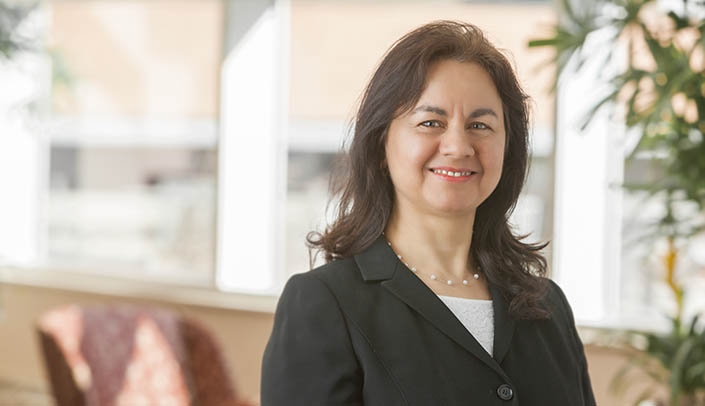Emotional and behavioral health issues are always a concern, but the COVID-19 pandemic has exacerbated these challenges.
UNMC pediatrician Arwa Nasir, MBBS, is part of a group in the American Academy of Pediatrics (AAP) that recently provided interim guidance for pediatricians and other health professionals on the psychosocial aspects of child and adolescent health during the pandemic. The guidance also is helpful for parents.
“There were specific issues about the pandemic that warranted special attention,” Dr. Nasir said. “It usually takes longer to put guidance together but this went through an expedited process. There was an urgent need for this kind of guidance.”
Dr. Nasir is part of the AAP’s National Committee on the Psychosocial Aspects of Child and Family Health, which meets regularly to discuss issues that impact children nationally.
“The pandemic is causing quite a bit of disruption to life in general – from unemployment, housing and food insecurity to emotional stress from being quarantined, uncertainty, worries about family health and education of children,” Dr. Nasir said. “Certainly, children are going to be affected. The hope we had for this guidance was to bring together the scientific evidence about what we know about how kids react to this stress.”
Out of their lengthy guidance, Dr. Nasir said she had two main pieces of advice for parents.
“We cannot shelter children entirely, but what’s most important for them is to have a nurturing, caring adult taking care of them. This is the biggest single factor that will allow the child to cope with the stress of these changes.”
She said it’s also important to provide structure.
“Keeping regular sleep and mealtimes is really important. Providing them with activities they can do that will keep them busy — even chores in the house — are good for kids. It gives them a sense of purpose in helping others.”
The guidance also addresses issues related to special at-risk groups hit harder by the pandemic, especially children with special health care needs, minority and immigrant populations, individuals living in poverty and LGBT groups, Dr. Nasir said.

Thank you Dr. Nasir, for this very important guidance. There is no doubt that the pandemic is considered an ACE (adverse childhood experience) worldwide and anything that parents and communities can do to recognize and address this is critically important to our societies going forward.
Well done!